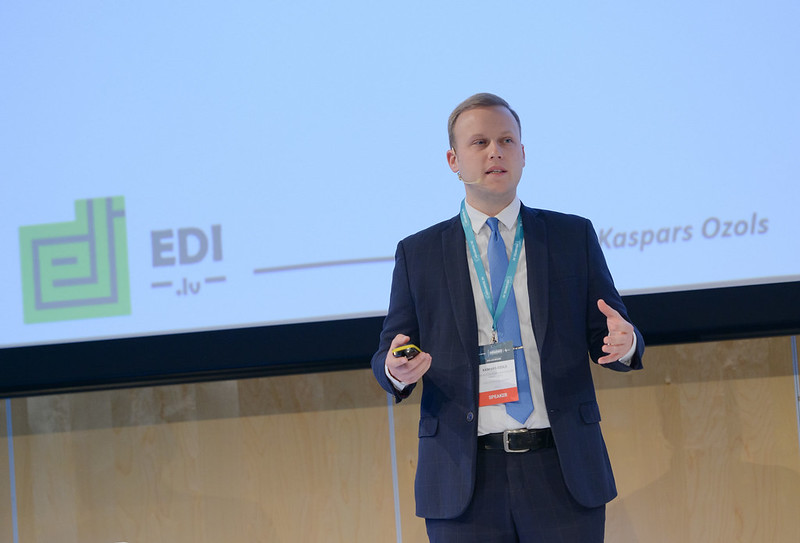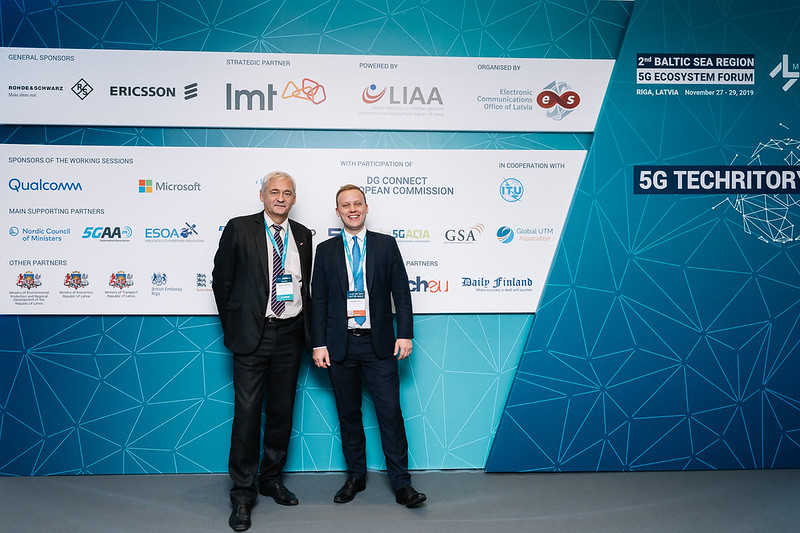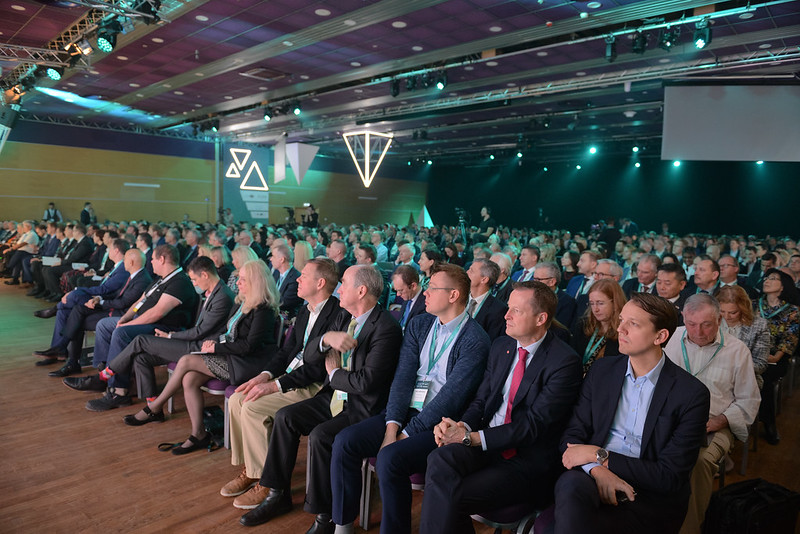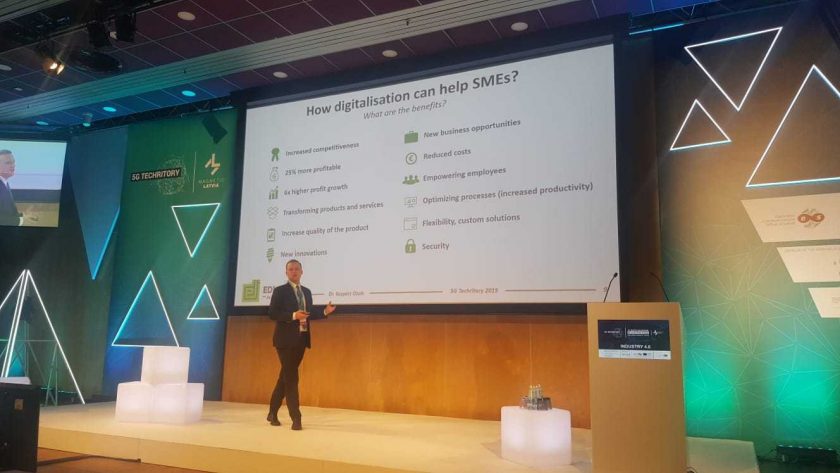
On November 27th to 29th the biggest regional 5G conference “5G Techritory” will be held in Riga.
Dr. Kaspars Ozols, a deputy of director of development and a senior researcher will represent EDI with a presentation “How digitisation and 5G can help SMEs to increase their competitiveness” which will be held on November 28th at 16:45 in OMEGA 1 hall.
( https://www.5gtechritory.com/speakers/kaspars-ozols )
About 5G Techritory
“5G Techritory” is 2nd Baltic Sea Region 5G Ecosystem Forum.
The exponential pace of technological development that we have seen since the dawn of time with the invention of the wheel continues to accelerate and impart profound social and cultural change in the world around us. We are moving ever-closer to a super-connected, 5G-enabled world. 5G infrastructure will become the engine of the connected world, and will rely on policy, norms and standards that do not yet exist.
Our data protection, healthcare, and more, all hangs in the balance. But we still need to establish a common ground among all of the players in the field of 5G technology. Rules to adhere to, values to be guided by, and goals to lead us all in one, unified direction.
In this forum professionals of the field will come together to collaborate on the advancement of this industry:
Innovators, business – to create inovative business models
Legislators – to create the policy to guide them
Investors – to fund the advancement of 5G society
More about the event here: https://www.5gtechritory.com/
EDI presentation available here: http://straume.lmt.lv/lv/konferences/konferences/digitalization-and-5G/1048723
About Dr. Kaspars Ozols presentation
In Europe, more than 99% of all enterprises are small and medium-sized enterprises (SMEs) and they contribute more than 55% of the total turnover in the EU. They are often referred to as the backbone of the European economy, providing jobs and growth opportunities.
In order to stay competitive not only in local market but also global market, these SMEs and especially manufacturing SMEs, has to embrace digital solutions in their businesses. In average, only 17% of all European SMEs sell online , not to talk about other more advanced digital solutions such as use of artificial intelligence, data analysis, sensors, communication devices, robots, etc. Companies which adopt different digital solutions are 25% more profitable than their competitors and generate six times higher profit growth, while companies which don’t are expect to fail within five years.
But why so many SMEs are still hesitating to use those digital tools? There are many reasons – lack of information about available digital solutions and how they could change their business, costs, fear of change, fear of failure, lack of competencies to adopt and run these solutions, and others. But of course, the question is not so simple. It is easy to make a mistake while adopting different digital solutions if you don’t have a clear vision how the technology can improve your business. The company has to analyse actual needs, available competencies, tools and technologies, impact/return of investment, as so on. Digital tools are “just” enablers – if you use them correctly, they can bring profit, higher quality and value products, increase competitiveness, optimize operation/processes, etc.
To help SMEs to explore and adopt different and sometimes very complex digital solutions and tools, European Commission has set up the Digital innovation hubs (DIH) initiative which will ensure that every company, small or large, high-tech or not, can grasp the digital opportunities. With technical universities or research organizations at the core, DIHs act as one-stop-shops where companies can get access to technology-testing, financing advice, market intelligence and networking opportunities.
In his speech, Kaspars will tell more how digitalization and especially 5G with higher speeds, lower latency and other benefits can help manufacturing SMEs to increase their competitiveness; how to identify the needs and technologies for your business; where to find support for digital transformation and how to embrace the change.


